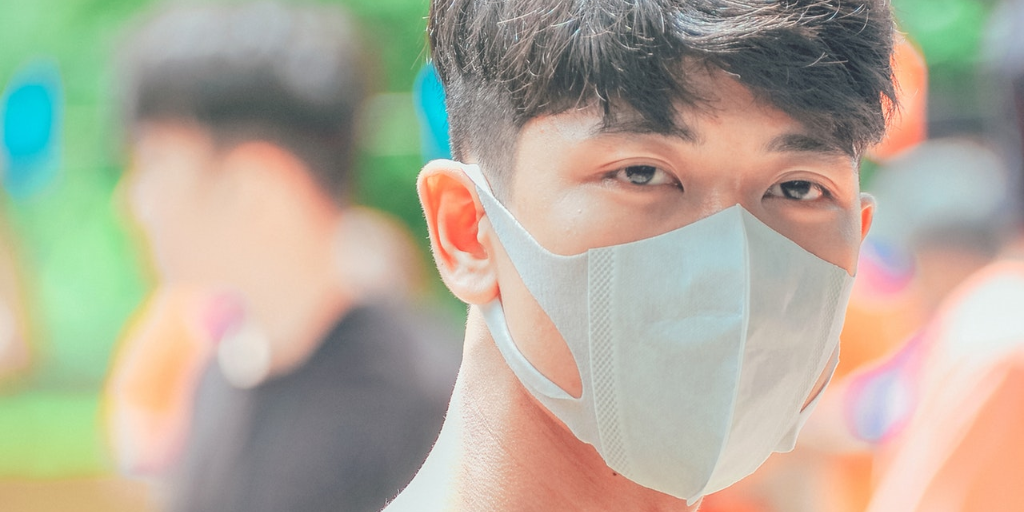What is the most effective system to guard against getting the coronavirus?
Hi there, thanks for joining us for episode 234 of Plain English. I’m Jeff, JR is the producer, and you can find all the episode resources at PlainEnglish.com/234.
On today’s episode: The paper face mask is now trending in Asia and here in North America as fears of the deadly coronavirus spread. But does that face mask help? And if not, what is the best system for dealing with the spread of coronavirus? The expression I have for you today is “guard against,” and we have a quote of the week.
Revealed: the most effective system to guard against the coronavirus
Paper face masks are flying off the shelves in Asia and North America, as consumers scramble to protect themselves from the deadly coronavirus. Tens of thousands of cases of the deadly virus have been reported in China, with isolated cases reported around the world. People inside China and travelers around the world are scrambling to do something—anything—to protect themselves. And the first place they often turn is to a paper face mask.
Amazon has been sold out of many of the most popular brands. The American company 3M makes a popular version of the mask; they have increased production of the masks at their plants both inside and outside China. Their plants now operate 24/7. The delightfully-named Foshan Nanhai Beautiful Nonwoven Co., a Chinese maker of masks, had to recruit hundreds of additional, temporary employees to help staff a major increase in production. They, too, are working around the clock producing new masks. China’s government has placed large orders with neighboring countries.
Chinese authorities are strongly cautioning people not to go outside without a mask in places where there are dense crowds. Near Wuhan, they are urging everyone to wear a mask in public. “Urging” might not always be the right word. In the Chinese province of Inner Mongolia, drones were flying above the street and admonishing people for not wearing face masks. A video shared by the English-language Global Times, a newspaper run by the government, shows a drone with a speaker attached saying to an elderly, mask-less lady: “Yes, Auntie, this is the drone speaking to you — you shouldn’t walk about without wearing a mask.” The newspaper cheerfully noted that the drone warnings were a good way of having some fun amid the crisis.
There must be a solid medical rationale for wearing these paper masks, given all the attention paid to them. Right? Not entirely. Many doctors say that wearing a paper mask is better than doing nothing—but only just barely better. A person is most likely to get the coronavirus through the eyes or the nose. When an infected person sneezes or coughs—sorry for the imagery here, but it’s unavoidable—when an infected person sneezes or coughs, tiny infected droplets rain down on all the nearby surfaces—doorknobs, tables, and the like. The virus can live like that for hours. Another person might touch that surface and then touch his eyes or nose, and contract the virus that way. A face mask would not guard against that type of transmission.
A mask also would not guard against a person breathing in the small droplets that might be airborne; they are not fine enough to filter out particles that small. However, they’re not totally useless. They may stop an infected person from spreading the virus via a sneeze or cough, and they may prevent someone from inadvertently touching his or her face. They also don’t fit tightly against your face, so it’s not an effective seal.
The best mask is something called the N-95 mask, which are used by health-care workers and workers who have to breathe in contaminated air, such as on a construction site. These filter out smaller particles and fit tighter to your face. But they still can’t stop you from acquiring the virus by touching your eyes or face after coming into contact with a contaminated surface.
Luckily, the medical establishment has pulled back the curtain on the most effective system for fighting the spread of the virus: your own immune system. Get enough sleep, stay healthy, and eat vitamin C, which is found in orange juice and leafy greens. Wash your hands frequently and clean commonly-touched surfaces. These common-sense measures are more effective than the paper masks, though they may not keep you from being berated by a talking drone.
Quick reminder for those of you not yet signed up to get our e-mails. JR sends those out every Monday and Thursday and they include a summary of the episode, links to two English-language articles about the main topic, and the definition of one extra word of phrase from the episode. That’s in addition to the one we talk about. So if you get those emails, then you’ll learn 104 new episodes a year, two for each of the 52 weeks in a year. So if you’re not yet on there, come join us at PlainEnglish.com/mail.
Great stories make learning English fun

